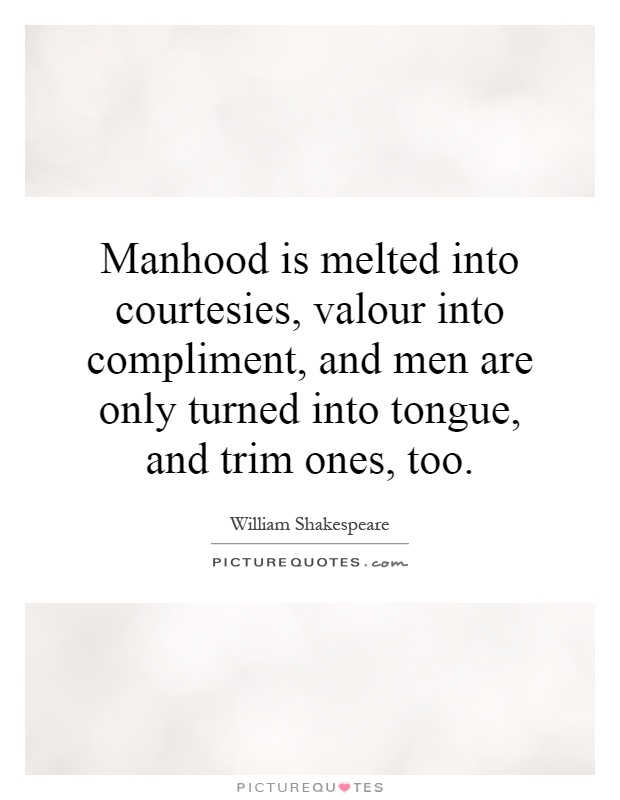Manhood is melted into courtesies, valour into compliment, and men are only turned into tongue, and trim ones, too

Manhood is melted into courtesies, valour into compliment, and men are only turned into tongue, and trim ones, too
In William Shakespeare's works, the theme of manhood and honor is a recurring motif that is often explored and challenged. In the quote "Manhood is melted into courtesies, valour into compliment, and men are only turned into tongue, and trim ones, too," Shakespeare delves into the idea that traditional notions of masculinity and bravery are being eroded by superficial displays of politeness and flattery.Throughout Shakespeare's plays, characters are often faced with the dilemma of maintaining their honor and integrity in a world that values appearances and social niceties above all else. In plays such as "Macbeth" and "Hamlet," we see characters who struggle with the expectations of society and the pressures to conform to certain standards of behavior.
In "Macbeth," for example, the titular character is consumed by his ambition and desire for power, leading him to commit heinous acts in order to achieve his goals. His actions are driven by a toxic masculinity that values strength and dominance above all else, ultimately leading to his downfall.
Similarly, in "Hamlet," the protagonist grapples with the expectations of his role as a prince and the demands of avenging his father's murder. Throughout the play, Hamlet is torn between his duty to his family and his own sense of morality, leading to a crisis of identity and a questioning of what it truly means to be a man.












 Friendship Quotes
Friendship Quotes Love Quotes
Love Quotes Life Quotes
Life Quotes Funny Quotes
Funny Quotes Motivational Quotes
Motivational Quotes Inspirational Quotes
Inspirational Quotes